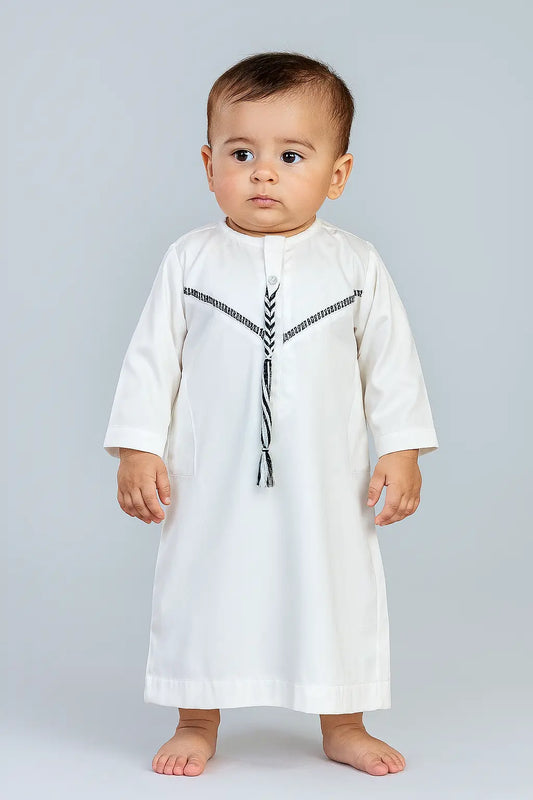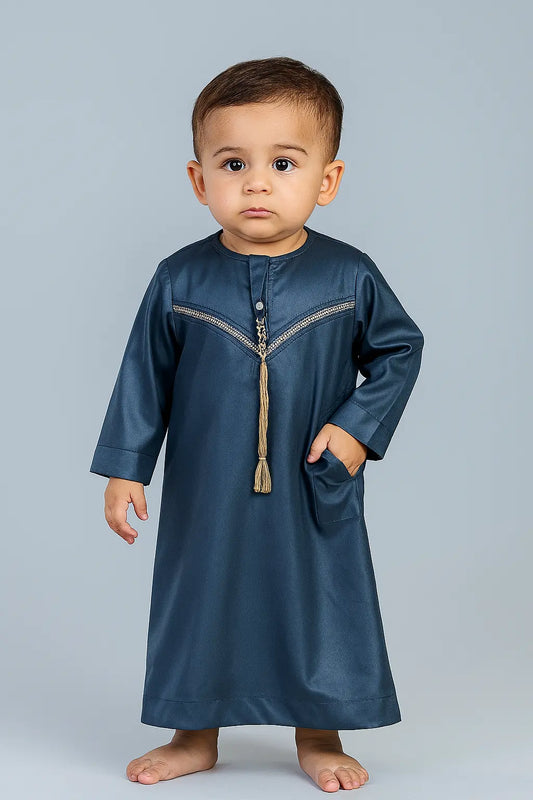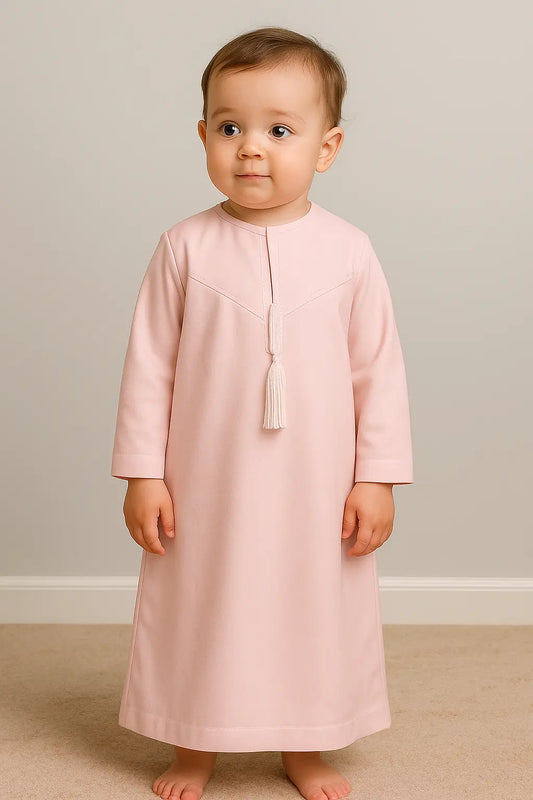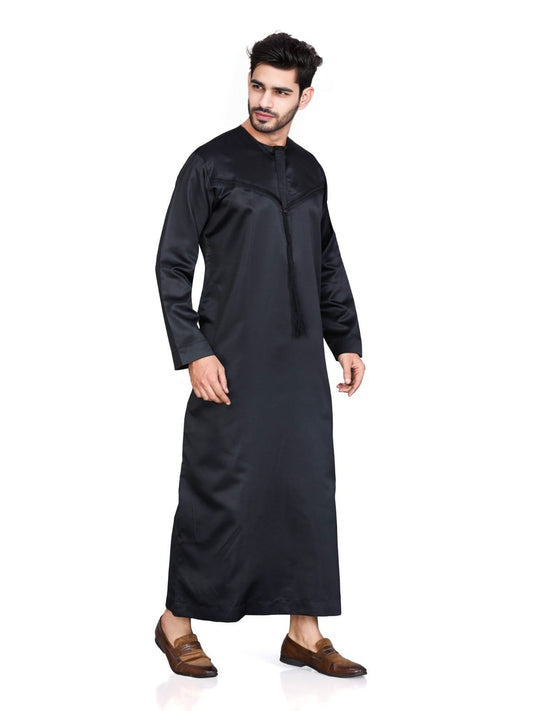Thobe
Boys’ Saudi-Style Thobe in Premium Vietnam Fabric | Kids Islamic Jubba - 6-7 year
- Regular price
- Rs. 999.00
- Regular price
-
- Sale price
- Rs. 999.00
- Unit price
- / per
Soft Fabric Jubba for Boys
- Regular price
- Rs. 999.00
- Regular price
-
- Sale price
- Rs. 999.00
- Unit price
- / per
Premium Boy’s Jubba – Lightweight Vietnam Fabric, Zip Closure
- Regular price
- Rs. 999.00
- Regular price
-
- Sale price
- Rs. 999.00
- Unit price
- / per
Kids’ Pink Omani Polyester Thobe Jubba – Boys thobe in india - 4-5 year
- Regular price
- Rs. 699.00
- Regular price
-
- Sale price
- Rs. 699.00
- Unit price
- / per
Elegant Maroon Omani Thobe for Boys – Traditional Islamic Wear for Kids - 6-7
- Regular price
- Rs. 699.00
- Regular price
-
- Sale price
- Rs. 699.00
- Unit price
- / per
Black Kids Thobe with White Cotton Tassel | Premium Vietnam Fabric for Boys
- Regular price
- Rs. 999.00
- Regular price
-
- Sale price
- Rs. 999.00
- Unit price
- / per
Maroon saudi thobe for boys
- Regular price
- Rs. 999.00
- Regular price
-
- Sale price
- Rs. 999.00
- Unit price
- / per
Saudi arabic thobe for kids and boys Besst jubba for Boys and kids
- Regular price
- Rs. 999.00
- Regular price
-
Rs. 899.00 - Sale price
- Rs. 999.00
- Unit price
- / per
Men stylish omani thobe made from lightweight vietnam fabric with zip closure - L 56
- Regular price
- Rs. 999.00
- Regular price
-
- Sale price
- Rs. 999.00
- Unit price
- / per
Isliba Men’s Quati Thobe – Grey Islamic Jubba in Premium Vietnam Fabric | Modest Wear for Eid, Namaz & Daily Use
- Regular price
- Rs. 999.00
- Regular price
-
- Sale price
- Rs. 999.00
- Unit price
- / per
Free Shipping
Free Shipping for all prepaid order
Online Support
24 hours a day, 7 days a week
Secure Payment
Secure Paymnet by Razorpay
7 days return
We Offer 7 days Free Return
- Choosing a selection results in a full page refresh.










